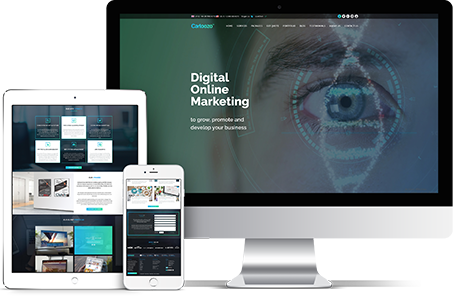Today, it is more than important to optimise a website for mobile users, because -
- The number of smart phone users in the United States is estimated to reach 222.9 million by 2017.
- There are over 2.6 billion smart phone users across the world.
- Android's market share is nearly 6x bigger than iOS.
- 37% of all website visits come from mobile devices.
- Phone owners in the U.S. use 2.5 GB per month.
- 62% of US online adults expect a mobile-friendly website.
- 75% of US online adults use 2+ devices connected to the internet.
Here are a few techniques to optimise your website:
Separate mobile URL
Create a parallel site for mobile users by using "m" subdomain.
(It is a key business decision.
) This allows you to create custom content for mobile visitors. (If possible, use
AMP – it is an open-source initiative to make the mobile experience better for everyone.)
Content
Due to space constraints, provide only specific details.
Tips:
- Use bullet points.
- Never write lengthy paragraphs or sentences.
- Provide essential information only.
Layout
Keep the number of pages minimum with simple layout so that it can easily load on any device.
Tips:
- Keep the layout as aligned as possible.
- Use simple and intuitive designs.
- Choose responsive designs.
Brand
The mobile version of your website should reflect brand’s image and integrity. Incorporate the same branding element to promote the brand’s essence.
Tips:
- Use the same colours and patterns as that of your desktop website.
- Use standard template.
"On YouTube, mobile watch time for product review videos has grown by 60% year over year".
White Space
Use white space wisely and allow users to select their products and services in a flexible manner.
Tips:
- Never cram too much information.
- Leave some white space for clean looks.
Avoid Flash or Java
In order to make your website fast, smart, flexible and intuitive, use minimal codes. Avoid using heavy Java scripts or Flash files.
Use Menus
Mobile users always want quick and easy access so, use drop-down menus, checklists and pre-populated fields. This will help people to navigate your website easily.
Tips:
- Provide lesser amount of information.
- Improve load time.
- Use best-in-class mobile technology.
- Keep testing and optimising your drop-down menus.
"64% of smartphone shoppers turn to mobile search for ideas about what to buy before heading into a store".
Page load speed
Of course, page speed is quite essential for mobile users. Besides optimising images, you need to minimise codes, leverage browser caching, as well as reduce redirects.
Optimise for local search
To attract local users, optimise your mobile content for local users. So, include your name, address, and phone number along with your city for the maximum visibility.
Simplify navigation
Navigating between many tabs and browsers is very difficult especially on mobiles and may lead to slow load time, so make sure you alert your user before they navigate through multiple tabs. It will also increase the overall efficiency of your mobile version.
Allow people to visit the full website
Always make sure you include links to help users to visit the full version of your website. This is one of the best ways to simplify the browsing experience of your users.
So, optimise your website for mobile users to make your presence felt.





